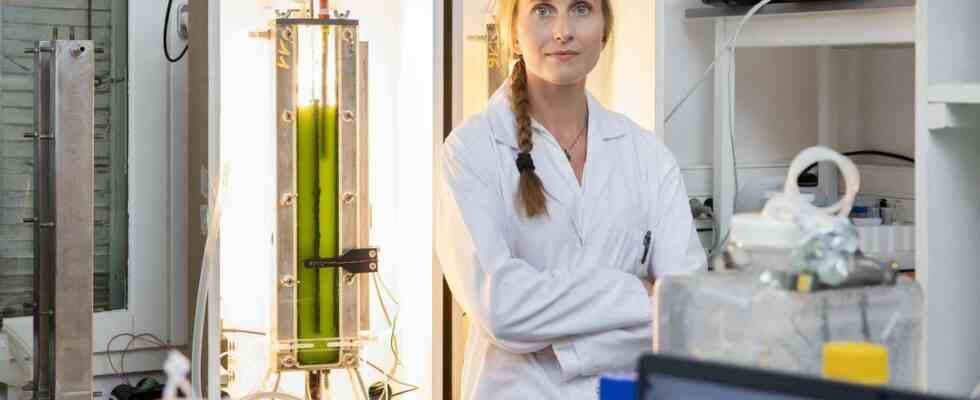While the water resource appeared, again this summer, more fragile than ever, the work of Francesca Casagli found a particular echo. Recipient of the L’Oréal-UNESCO Young Talent Prize for Women in Science on Wednesday, the 33-year-old scientist, postdoctoral researcher at the National Institute for Research in Computer Science and Automation (Inria) in Sophia-Antipolis, seeks to “develop biosystems for the purification of contaminated water”. The ones that run through our sewers.
Clearly, new greener ways of treating the 50 m3 produced annually on average by each inhabitant of developed countries, before reinjecting them into the natural environment. “For a lower cost and energy consumption”, supports the researcher of Italian origin. And it is with micro-algae, in addition to the classic bacterial cocktail, that she builds her mathematical models. She is currently working in her laboratory on optimizing “the action of these microorganisms depending on the season or their location”.
Residues used to produce biofuels
“Micro-algae have many advantages for eliminating contaminants from water to be recycled, while ensuring the production of oxygen necessary for the activity of bacteria that we would have to inject more from the outside. And that represents a very big reduction in costs”, presents Francesca Casagli. In addition, “these bioprocesses can reduce greenhouse gas emissions,” she argues.
The other plus is that microalgae make it possible to “incorporate nitrogen and phosphorus into the sludge eliminated after water treatment which can thus be recycled”, explains the holder of a doctorate in engineering from environment and infrastructure obtained at the Politecnico di Milano. So there is no longer any question of doing anything with these residues. “It will no longer be a waste, assures the 30-year-old. With it, we will be able to produce biofertilizers, bioplastics and even biofuels. And that’s very good news when the news is hot around fossil fuels. »
A circular economy
This new circular economy would be a revolution according to Francesca Casagli. “We could take advantage of all that biomass that will somehow grow on our wastewater. A kilo of nitrogen has the same energy content as a kilo of gasoline,” she says. But these new processes, which have interested the scientific community for several years, even decades, are not yet developed.
The Côte d’Azur researcher is working to make them more economical, both financially and in terms of energy. And to optimize these hypothetical future purification processes, she “develops methods involving artificial intelligence”, she concludes.

